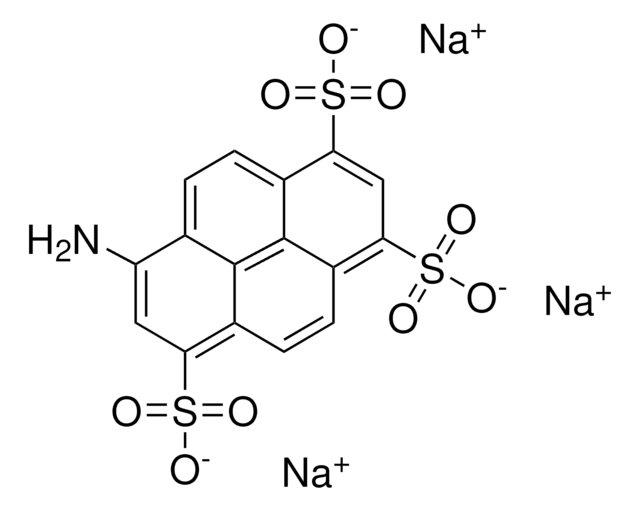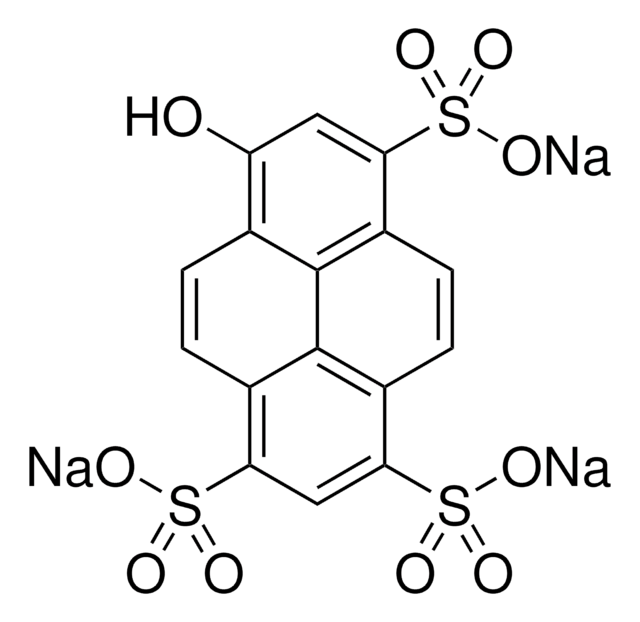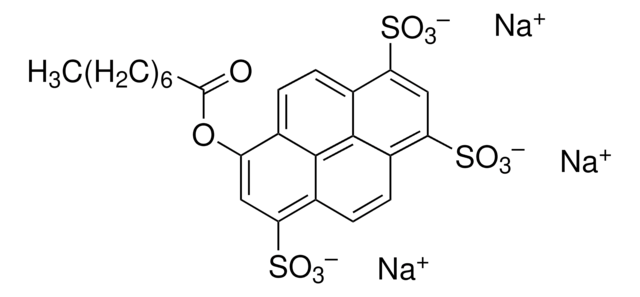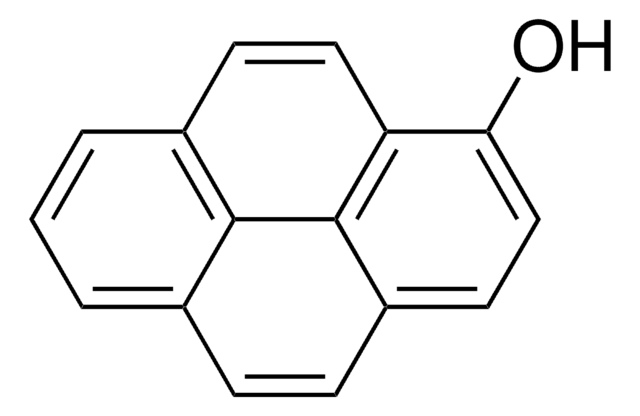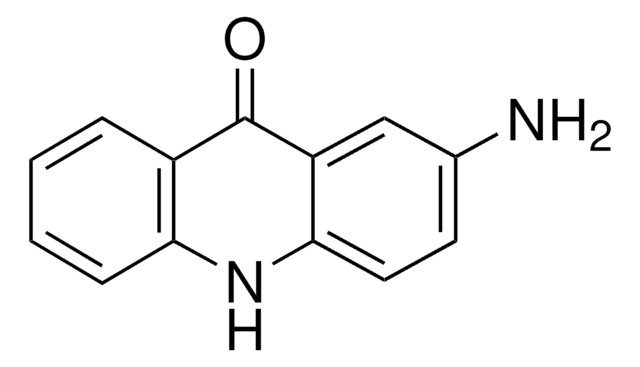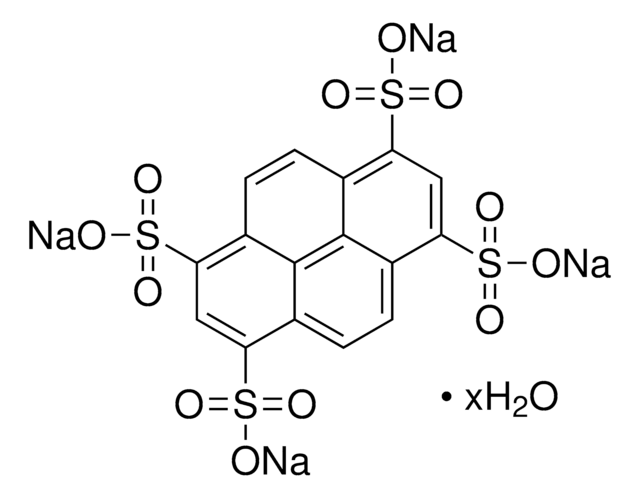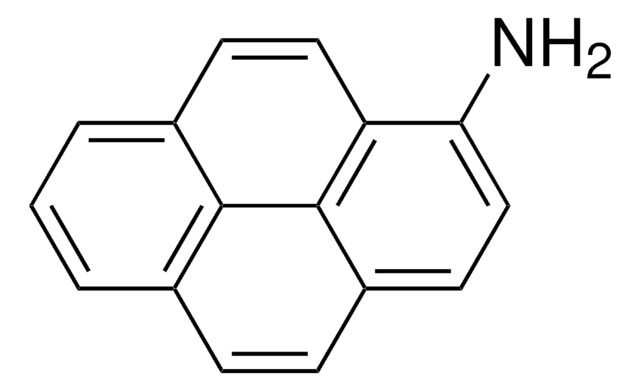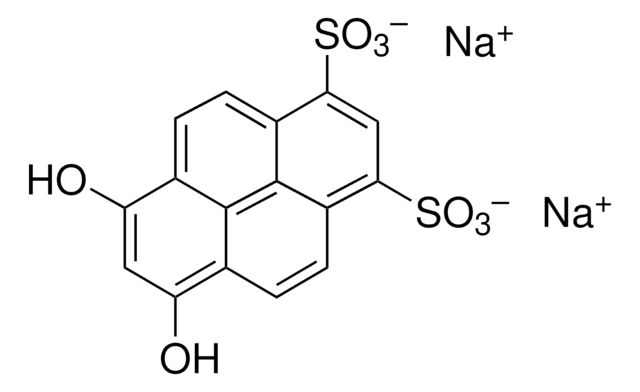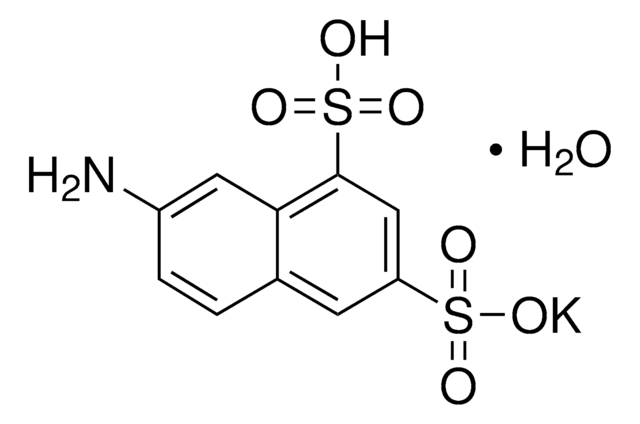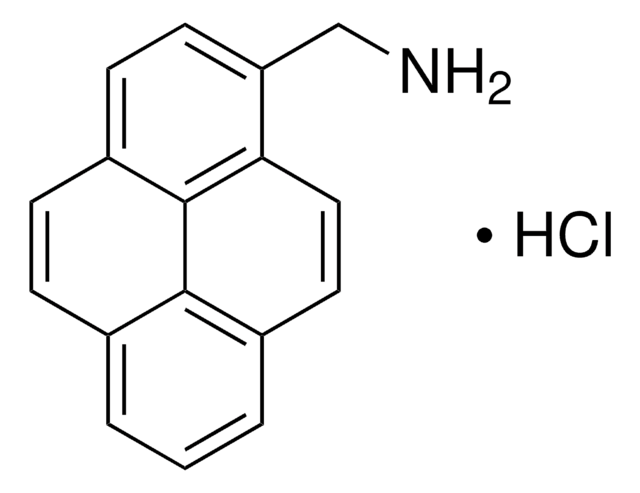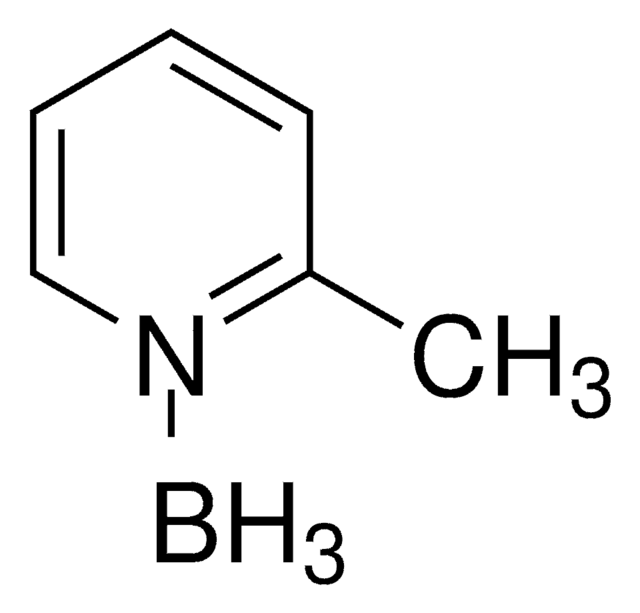A7222
8-Aminopyrene-1,3,6-trisulfonic acid trisodium salt
≥96.0% purity (HPCE), solid
Synonym(s):
1,3,6-Pyrenetrisulfonic acid, 8-amino trisodium salt, APTS, Trisodium 8-aminopyrene-1,3,6-trisulfonate
About This Item
Recommended Products
Product Name
8-Aminopyrene-1,3,6-trisulfonic acid trisodium salt, ≥96.0% (HPCE), solid
Quality Level
Assay
≥96.0% (HPCE)
form
solid
technique(s)
titration: suitable
color
beige to dark beige
yellow to dark yellow
mp
≥250 °C (lit.)
application(s)
diagnostic assay manufacturing
hematology
histology
storage temp.
2-8°C
SMILES string
[Na+].[Na+].[Na+].Nc1cc(c2ccc3c(cc(c4ccc1c2c34)S([O-])(=O)=O)S([O-])(=O)=O)S([O-])(=O)=O
InChI
1S/C16H11NO9S3.3Na/c17-11-5-12(27(18,19)20)8-3-4-10-14(29(24,25)26)6-13(28(21,22)23)9-2-1-7(11)15(8)16(9)10;;;/h1-6H,17H2,(H,18,19,20)(H,21,22,23)(H,24,25,26);;;/q;3*+1/p-3
InChI key
XSTNYACEWLNWPY-UHFFFAOYSA-K
Looking for similar products? Visit Product Comparison Guide
Application
Packaging
Signal Word
Warning
Hazard Statements
Precautionary Statements
Hazard Classifications
Eye Irrit. 2 - Skin Irrit. 2 - STOT SE 3
Target Organs
Respiratory system
Storage Class Code
11 - Combustible Solids
WGK
WGK 3
Flash Point(F)
Not applicable
Flash Point(C)
Not applicable
Personal Protective Equipment
Choose from one of the most recent versions:
Already Own This Product?
Find documentation for the products that you have recently purchased in the Document Library.
Customers Also Viewed
Our team of scientists has experience in all areas of research including Life Science, Material Science, Chemical Synthesis, Chromatography, Analytical and many others.
Contact Technical Service